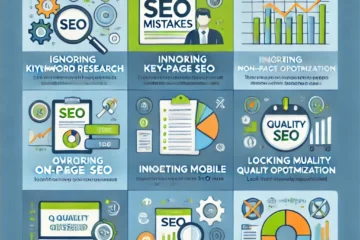What are canonical tags? When duplicate content exist, search engines need a means to determine the origin on that content, they use this certain meta tag to determine that URL origin for the content. The reason the content origin URL is required, helps understand keyword relevancy while also preserving the keyword relevancy on the content origin webpage. Now when duplicate content is talked about, it’s not something small, like a paragraph or two. Often it’s the whole webpage, that closely or exactly matches another webpage. This is often done to manipulate search engine rankings and really is a website killer.
Duplicate content just sounds bad, but really it’s even worse than it sounds. Duplicate content can lead to keyword loss, and eventually will cause website traffic loss. Just fixing duplicate content via canonical tags and noindexing tag and category pages in CMS platforms, will dramatically improve keyword rankings, as search engines can clearly see one webpage for keyword relevancy. Yoast has a great article about duplicate content to read up on!
When Duplicate Content Is A Technical SEO Issue
Many times, duplicate content can be caused by plugins, printer friendly webpages. Not defining a single variation of a domain can cause duplicate webpages. Such as moving a website from http to https for security reasons. When url variations aren’t defined, searchbots can find a few urls that lead to the same place, which they will see as duplicate content.
If the following homepage url variations don’t redirect to one or the other, it’s seen as duplicate content:
- www.domain.com
- domain.com
Then both URLs will be treated as duplicate webpages, since they both resolve and show the same webpage. That’s why it’s important to always include a canonical tag, that determines the content origin. Otherwise an algorithmic penalty could occur, but most likely, keyword cannibalization will happen, which will cause headaches in keyword rankings. It’s important to make sure .htaccess file is defining the proper domain and redirecting all other variations!
When Duplicate Content Becomes Keyword Cannibalization
When duplicate content occurs, and searchbots pick up all duplicate pages, something called keyword cannibalization can happen. Keyword cannibalization is when multiple webpages on a website, rank for the same keyword. You might think this is something good, but it will cause website traffic to split, and send users away from the webpage that their most likely to convert on.
From a conversion rate optimization angle, that’s the last thing you want to do, is have users land on an irrelevant webpage. Keywords are your lifeline to the users who intend on using your service, buying your product, or digesting your content. Without proper content relevancy, users don’t find the information they expect, and are more likely to hit the back button and increase bounce rate. It’s important to keep each webpage targeting one keyword, not just for searchbots but users as well!
If you think you have a duplicate content issue, contact SEOByMichael for an SEO audit and figure out the issues holding your website traffic back!


